
There is a LOT to like about this bill. I want to highlight some of the proposed changes beyond just legalization, including:
- Ending the 3 & 10 year bars
- Curbing the "Muslim ban" authority
- Preventing "aging out" of children on nonimmigrant visas.
buildbackbetter.gov/press-releases…
- Ending the 3 & 10 year bars
- Curbing the "Muslim ban" authority
- Preventing "aging out" of children on nonimmigrant visas.
buildbackbetter.gov/press-releases…
Today's press release says the new bill will revoke the 1996 immigration bill's creation of 3 and 10 year bars to getting a visa for those who have been present unlawfully in the US for 6 months or over a year.
Here's @immcouncil's fact sheet on the bars: americanimmigrationcouncil.org/research/three…
Here's @immcouncil's fact sheet on the bars: americanimmigrationcouncil.org/research/three…
The new bill has multiple provisions designed to reduce the current green card backlogs, which for nationals of some countries like India, China, Mexico, and the Philippines, can mean the process of obtaining a green card can take 20+ years (or even longer in some cases). 
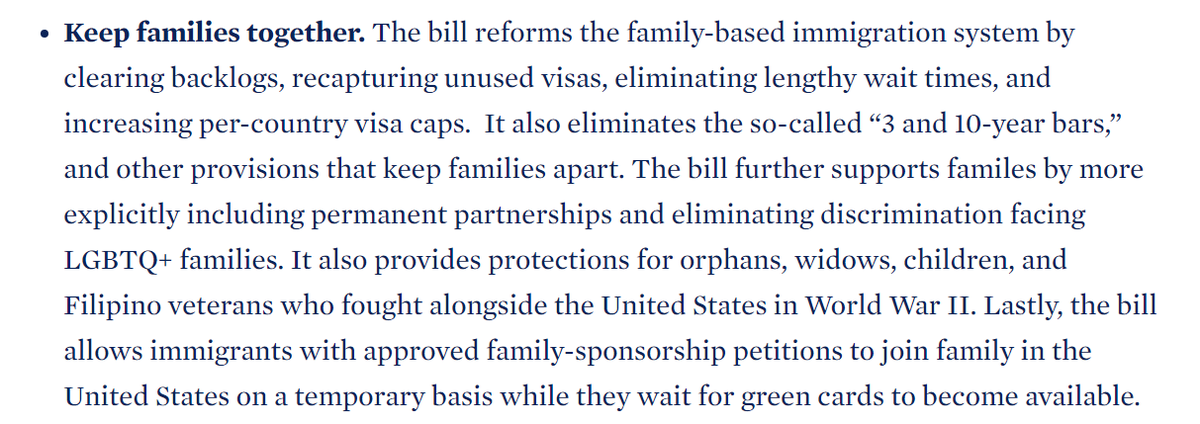
The bill would also create similar reforms for the employment-based immigration system, where backlogs are even worse. Under the current system, some Indian nationals seeking a green card are predicted to have a 100+ year wait for a visa! The new bill would do a lot to fix that. 
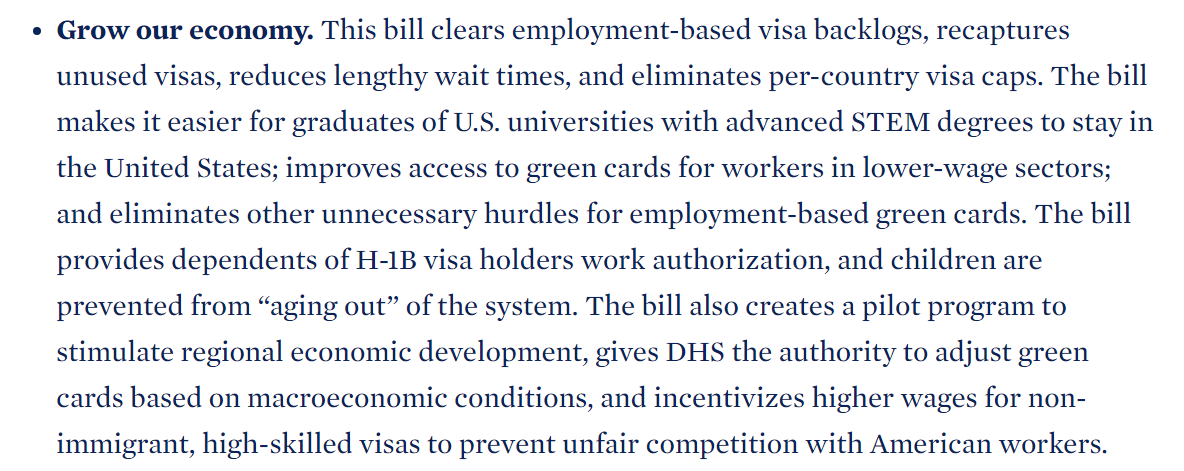
This particular provision would be a welcome change for thousands of people who grow up in the United States as a "derivative" on their parents' nonimmigrant work visas.
Under current laws, they have to leave the US when they turn 21 (if they can't get another visa).
Under current laws, they have to leave the US when they turn 21 (if they can't get another visa).
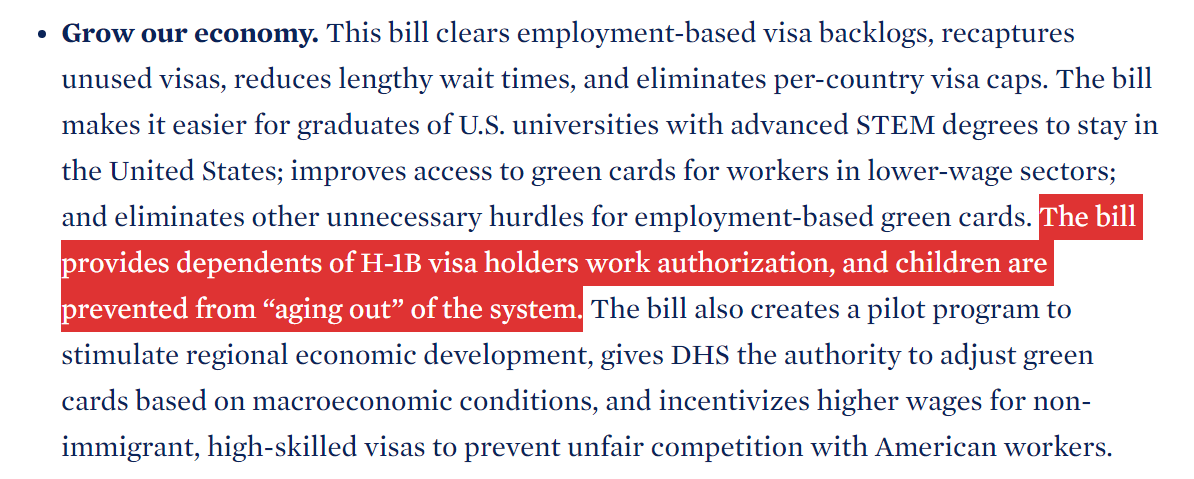
By incorporating the NO BAN ACT the bill would eliminate the law that allowed Trump to impose the Muslim Ban and replace it with a provision that requires consultation with Congress, specific factual findings, can only be used for a narrow list of topics, and can't be indefinite. 

However, not everything in the bill goes as far as advocates will like. For instance, we have long been calling for the creation of an independent immigration court system, uncoupled from DOJ. This bill doesn't contain that recommendation. But it does make some important reforms. 
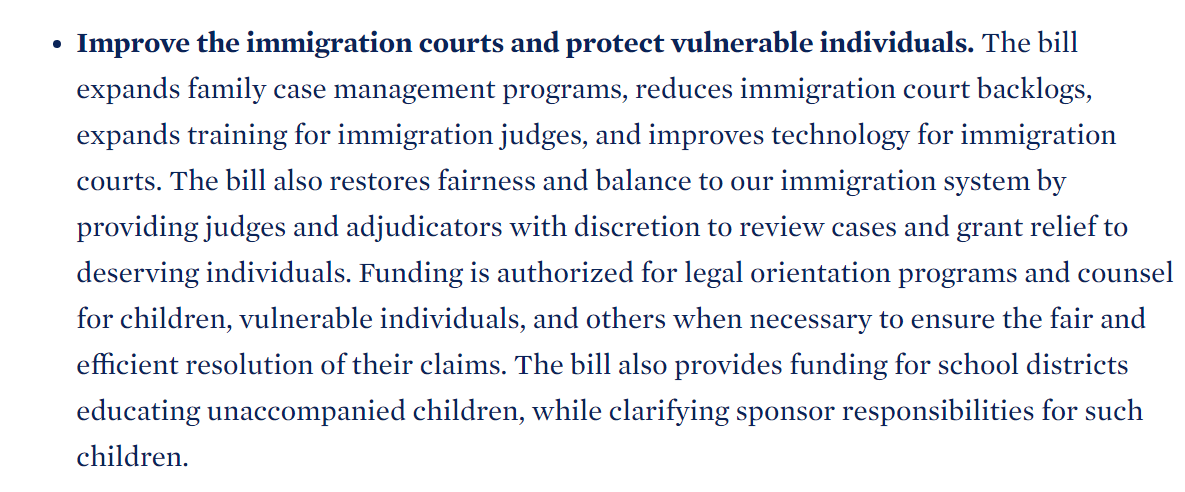
One major change the bill would make to immigration court is to require the government to provide counsel for children.
Under current law, a 5-year-old can legally face an immigration judge without a lawyer.
Under the new bill, that wouldn't be allowed. It's a welcome change!
Under current law, a 5-year-old can legally face an immigration judge without a lawyer.
Under the new bill, that wouldn't be allowed. It's a welcome change!
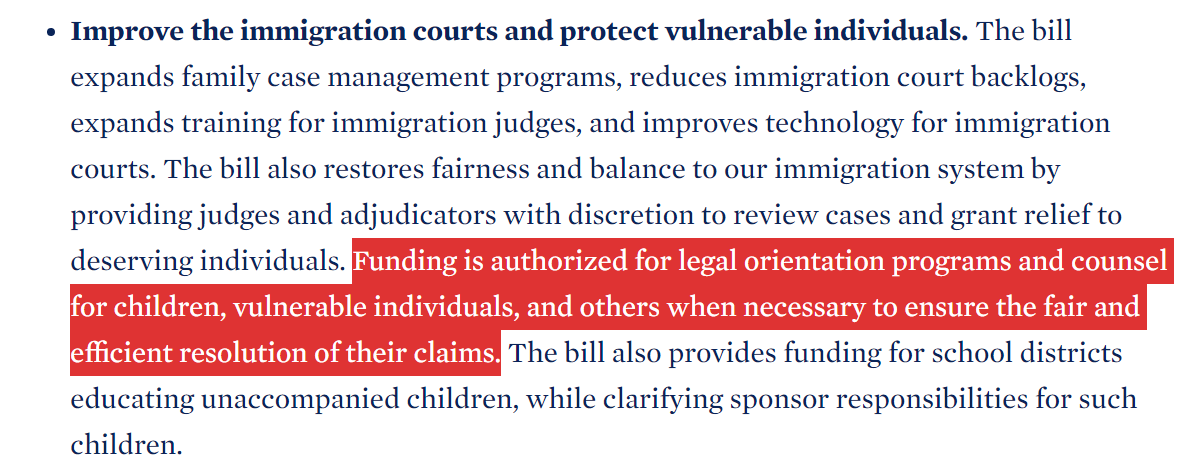
Another change I like in the immigration court section? Restoring discretion to immigration judges so that everyone can ask for a second chance to remain in the United States.
Congress got rid of a version of that authority in 1996 and it did enormous damage.
Congress got rid of a version of that authority in 1996 and it did enormous damage.
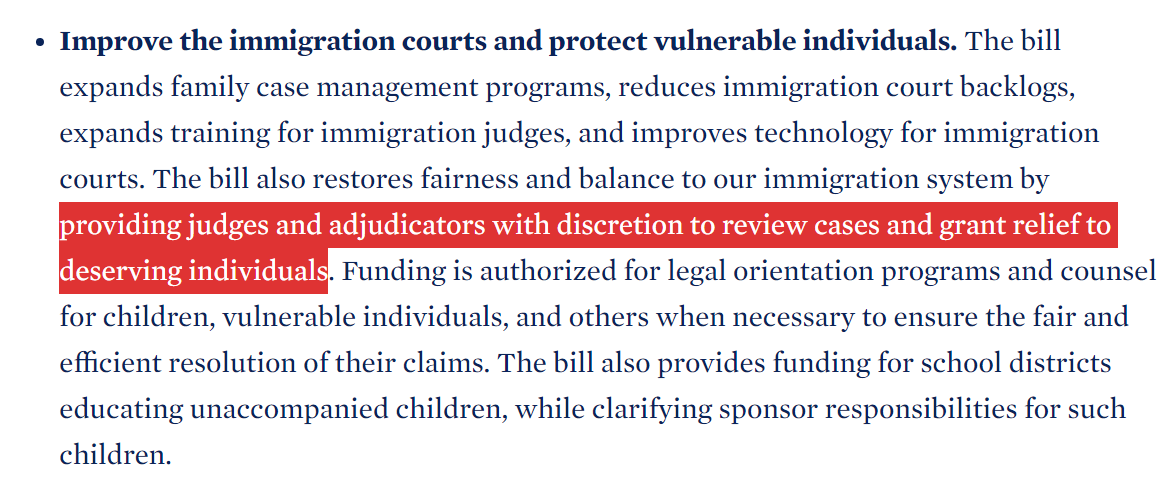
The bill would also make some vital changes to the asylum system, including repealing the one year filing deadline (also introduced in 1996) and authorizing funding to reduce the 300,000+ affirmative asylum backlog at USCIS.
I wish it did more on substantive asylum law, though.
I wish it did more on substantive asylum law, though.

The bill's increasing of the U visa numbers from 10,000 to 30,000 is welcoming, though with the current backlog over 100,000 it would still make people wait for years... but with the more generous legalization provisions, the backlog would probably be eliminated anyway. 

One major portion of the bill is designed to address the root causes of migration.
Under Trump, the focus was almost entirely on hardening the border to stop people from getting in. This bill (which mirrors legislation previously introduced in the House) focuses on push factors.
Under Trump, the focus was almost entirely on hardening the border to stop people from getting in. This bill (which mirrors legislation previously introduced in the House) focuses on push factors.
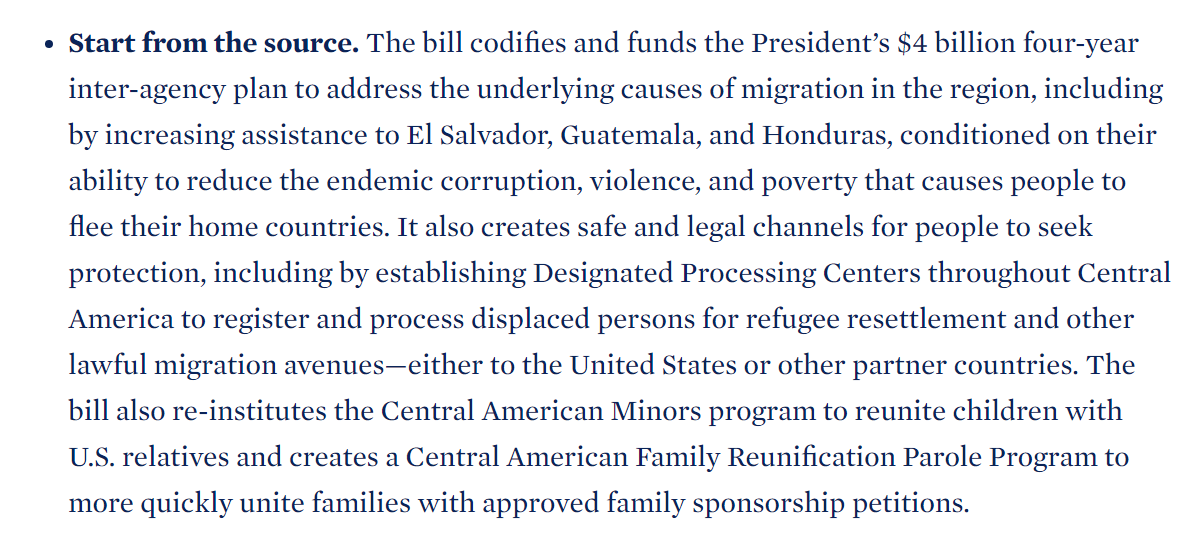
While the bill introduced today contains no new funding for immigration enforcement (a welcome move given how much money has been wasted on that over the last decade), it does expand criminal penalties for smuggling & trafficking.
Personally, not a fan of any "tough on crime."
Personally, not a fan of any "tough on crime."

When it comes to changes to the border, I think many advocates will wish the bill could have gone further. E.g. we get welcome changes like the creation of a Border Community Stakeholder Advisory Committee but no substantive changes to the DHS Secretary's authority to waive laws. 
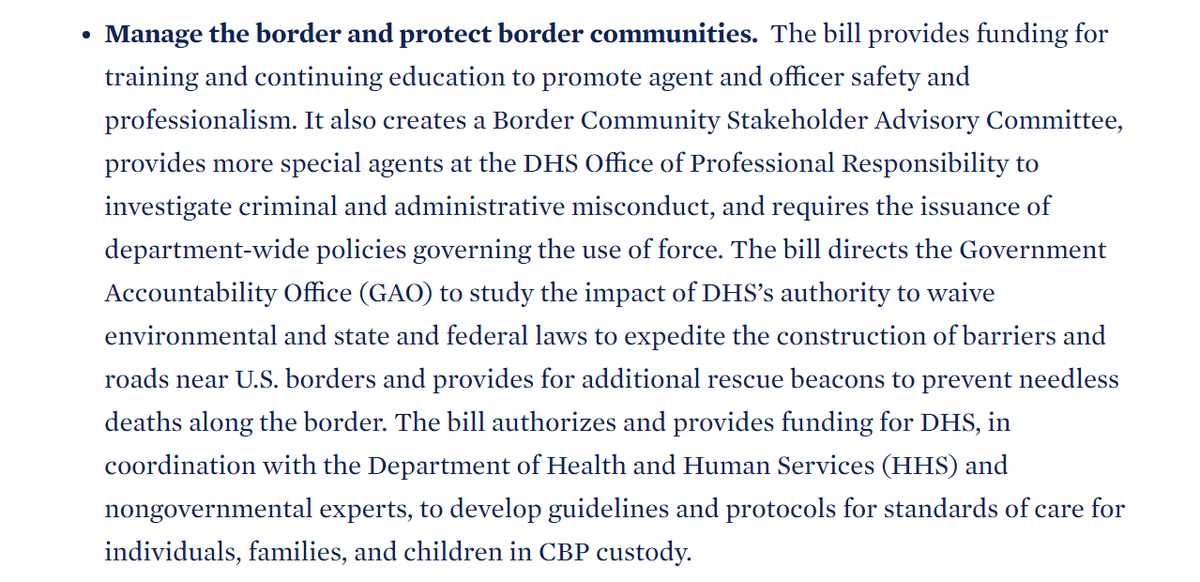
The Biden bill does increase border enforcement in this section, primarily at ports of entry—where over 90% of all drugs are smuggled into the US.
A lot of this is what has been deemed "smart enforcement," though privacy advocates have raised serious concerns about surveillance.
A lot of this is what has been deemed "smart enforcement," though privacy advocates have raised serious concerns about surveillance.
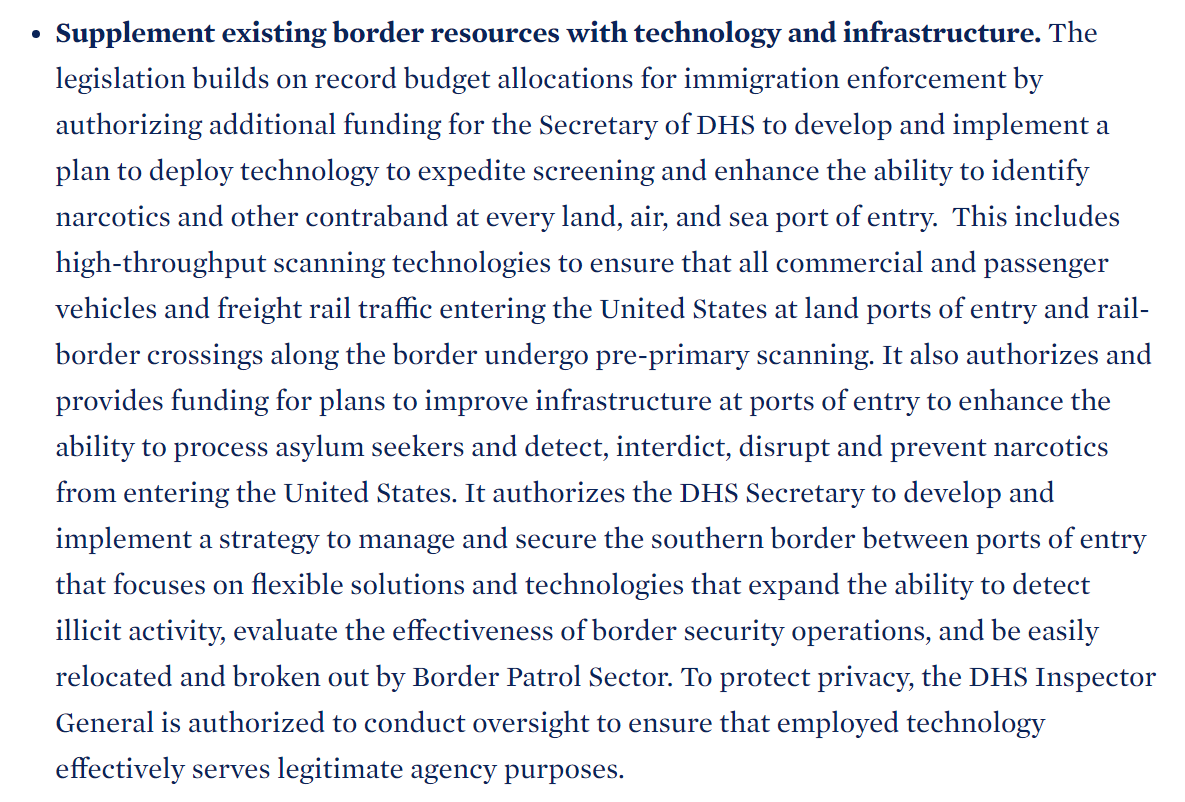
One thing the Biden bill would do which has received little attention is beef up protections for migrant workers, who are often exploited by their employers in really terrible ways.
For example, the bill would block ICE from deporting someone while DOL was investigating abuses.
For example, the bill would block ICE from deporting someone while DOL was investigating abuses.
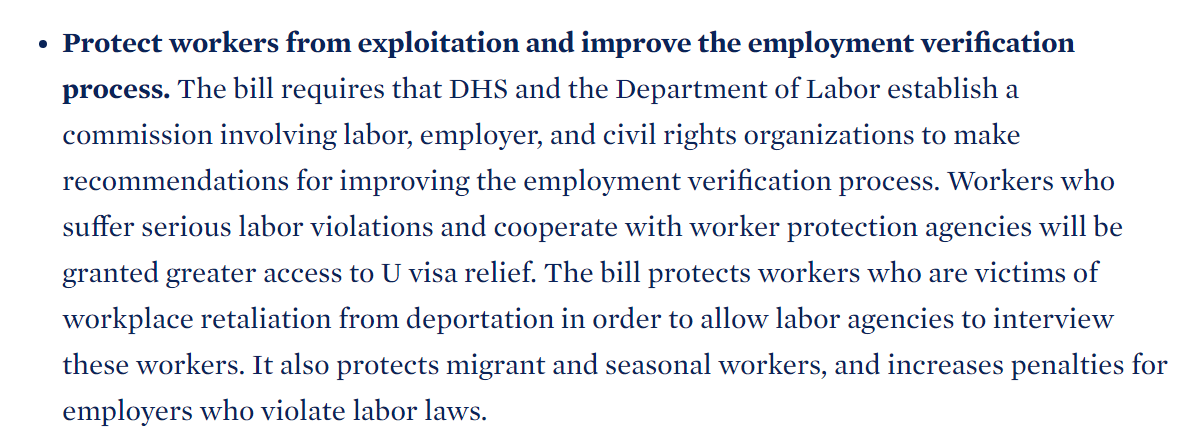
Finally, there's the thing I mentioned in the first tweet has already gotten a ton of attention.
This is a bold plan to provide a path to status to ALL undocumented immigrants, not just a favored few.
An earned path to citizenship is overwhelmingly popular. I hope we get it.
This is a bold plan to provide a path to status to ALL undocumented immigrants, not just a favored few.
An earned path to citizenship is overwhelmingly popular. I hope we get it.
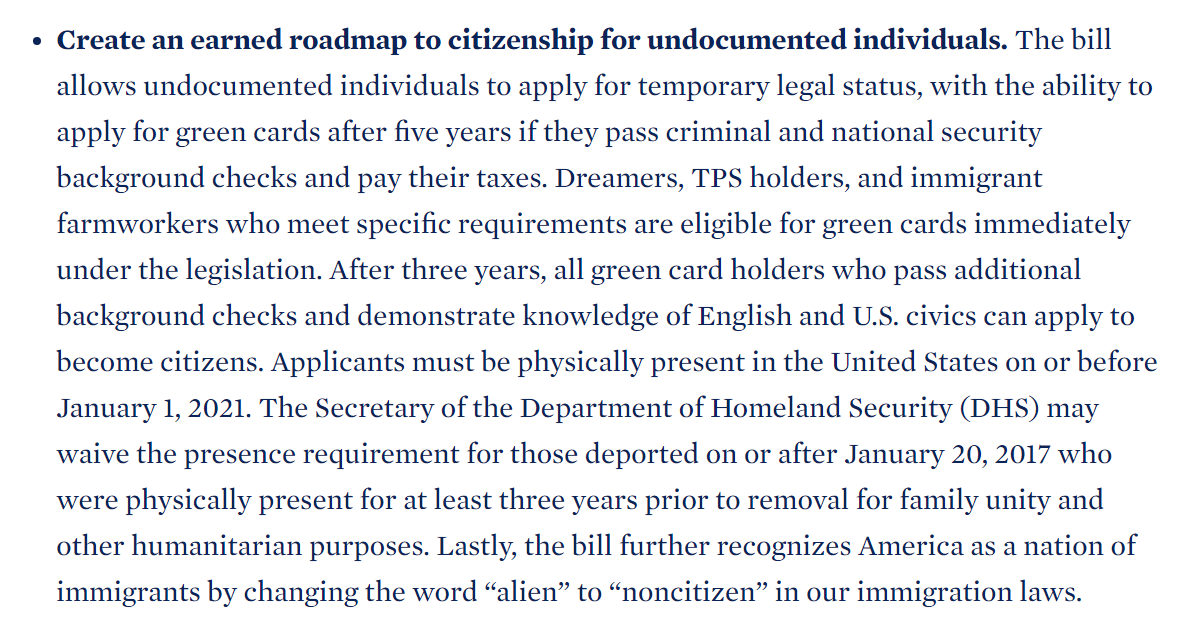
As @immcouncil's Policy Director @JorgeLoweree said in our statement today, "President Biden's new vision for immigration reform is extraordinary and a welcome development for America."
Now it's up to Congress.
Read our statement on the bill here:
americanimmigrationcouncil.org/news/new-visio…
Now it's up to Congress.
Read our statement on the bill here:
americanimmigrationcouncil.org/news/new-visio…
• • •
Missing some Tweet in this thread? You can try to
force a refresh










